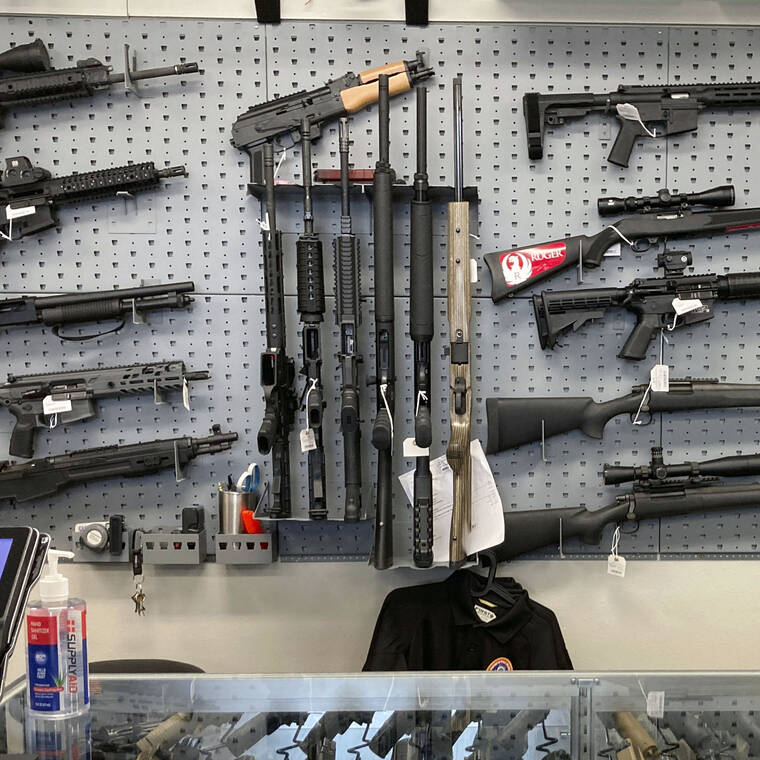US judge gives initial victory to Oregon’s tough new gun law
PORTLAND, Ore. (AP) — A federal judge in Portland delivered an initial victory Tuesday to proponents of a sweeping gun-control measure approved by Oregon voters, allowing a ban on the sale and transfer of new high-capacity magazines to take effect this week while giving law enforcement more time to set up a system for permits that will now be required to buy or transfer a gun.
U.S. District Judge Karin Immergut granted a 30-day delay before the permit-to-purchase mandate takes effect, but did not quash it entirely as gun rights advocates had wanted and allowed the other provisions of the law — including the high-capacity magazine ban — to take effect Thursday.
ADVERTISING
Oregon Attorney General Ellen Rosenblum filed papers with the court late Sunday seeking a delay in the implementation of the permitting portion of the new law after law enforcement agencies submitted sworn statements saying they could not be ready in time.
“In light of the difficulty the State has conceded in terms of implementation of the permitting provisions at this stage, implementation of those permitting provisions is stayed for thirty days,” Immergut wrote.
Measure 114, which narrowly passed in the midterms, requires a permit, criminal background check, fingerprinting and hands-on training course for new firearms buyers and bans the sale, transfer or import of gun magazines over 10 rounds unless they are owned by law enforcement or a military member or were owned before the measure’s passage. Those who already own high-capacity magazines can only possess them in their homes or use them at a firing range, in shooting competitions or for hunting as allowed by state law after the measure takes effect.
After Thursday, a gun cannot be sold or transferred until the background check comes back; previously, sales could take place if the check took longer than three business days — the so-called “Charleston loophole,” a gap in federal gun law that allowed the purchase of the gun used in a 2015 South Carolina mass shooting.
Multiple gun rights groups, local sheriffs and gun store owners have sued, saying the law violates Americans’ constitutional right to bear arms. Gun sales and requests for background checks soared in the weeks since the measure was approved by voters Nov. 8 because of fears the new law would prevent or significantly delay the purchase of new firearms under the permitting system.


